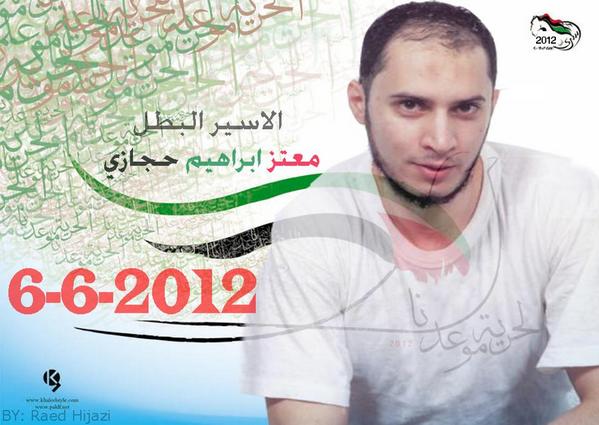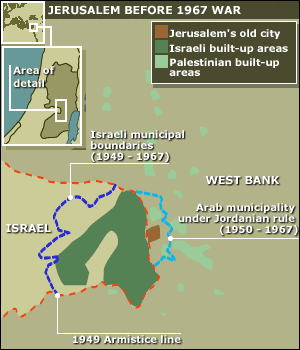Jerusalem's Temple Mount — home to the holiest site in Judaism and one of the holiest in Islam — is closed for the first time in at least 14 years, and possibly since Israel took over east Jerusalem in 1967. The reason is that fears of large-scale political violence are rising in the city. After months of clashes between Arab residents and Israeli police, an operative allegedly with Islamic Jihad attempted to assassinate a far-right Jewish activist on Wednesday, raising tensions to critical levels. Some analysts are already calling this the start of a third intifada, though others say it's far too early to tell.
So how did Jerusalem get so bad? What happened, and what's going to happen next? Here's a guide to the Jerusalem conflict.
The violence in Jerusalem has been ongoing since before this summer's Gaza war
/cdn1.vox-cdn.com/uploads/chorus_asset/file/2407846/458102780.0.jpg)
More October 30th violence. (Salih Zeki Fazlioglu/Anadolu Agency/Getty Images)
Much of the violence has been spontaneous. Arab residents of East Jerusalem — who are residents of Israel, but overwhelmingly not citizens — have taken to the streets, throwing rocks and firebombs at Israeli police (who responded with force that, in some cases, may have been excessive) and attacking the city's light rail system. But to understand this story, you have to go back to before this summer's Gaza war.
Even before the war, street-level conflict had been a fact of life in Jerusalem. "There were 'minor' clashes for a few months" before the war, according to Brent Sasley, an expert on Israel-Palestine at the University of Texas-Arlington. "It's been ongoing for a long time."
IT'S ONE OF THE WORST BOUTS OF VIOLENCE IN THE CITY SINCE 1967
In early July (just before the official onset of the Gaza war), 16-year-old Palestinian Muhammed Abu Khdeir was killed by extremist Israelis. Since then, the clashes have escalated severely. "It's been more or less continuous since the murder of Muhammad Abu Khdeir," Matt Duss, the president of the Foundation for Middle East Peace, says. Terrestrial Jerusalem, a group that focuses on issues surrounding the city, noted in September that there had been "violence and rioting almost daily" since July.
Since then, the severity of the clashes has ebbed and flowed, depending on events on the ground. Take the massive bout of protests on the weekend of October 26. Those escalated after a 14-year-old American-Palestinian boy was killed by Israeli police at a protest that's held every week. Israeli police claimed he was about to throw a firebomb at them; the protestors dispute that.
Ultimately, the root cause of the conflict is Arab anger at the political status quo, which they see as a suffocating Israeli occupation without end. "The current eruption," according to Terrestrial Jerusalem, "reflects a number of factors, including deeper and more personalized hatreds; a generational shift; growing despair of a political solution; and the Gaza conflict." Another important factor is recent Israeli settlement expansion near east Jerusalem. Ominously, Terrestrial Jerusalem warns it's one of the worst bouts of violence in the city since 1967.
This week's dangerous escalation began with a shooting
Late on Wednesday night, an Arab gunman shot a right-wing Israeli-American rabbi, Yehuda Glick, in Jerusalem. The attempted assassination has heightened the existing, generalized tensions in the city for its simple political violence but also because it touches on one of the Israel-Palestine conflict's most sensitive issues: the Temple Mount.
Glick leads the Temple Mount Faithful organization, which is dedicated to re-building the long destroyed Jewish Temple on the Temple Mount. That's a highly political, even dangerous, idea: access to the Temple Mount is controlled by Israel, but only Muslims are allowed to pray there. Both the al-Aqsa mosque and the Dome of the Rock, Muslim holy sites, are located there; allowing Jews access to the Western Wall and Muslims access to the Temple Mount is meant as a sort of compromise. Calling to rebuild the ancient Temple on the Mount is a way of upsetting that balance, and claiming the entirety of the holy site for Jews.
That's considered a dangerous idea. Construction on one of Islam's holiest sites would infuriate Muslims in Israel, the Palestinian territories, and around the world. It's also an extreme position among Jews: most rabbis believe the temple cannot or should not be rebuilt until the Jewish Messiah comes. In addition to rebuilding the Temple, Glick also wanted to expand Jewish prayer rights on the Temple Mount, a less radical challenge to the Temple Mount status quo.
So shooting Glick, a polarizing figure, was almost immediately seen as a political act. The would-be assassin, reportedly named Mu'taz Hijazi, was killed in a shootout with Israeli police. The militant group Islamic Jihad claimed responsibility for his attack; according to Israel's Channel 2, a spokesman for the group said that "the assassination attempt on Glick is an act of Palestinian vengeance, in response to what is happening in Jerusalem."

Photo of Mu'taz Hijazi, who was shot dead by police this morning in J'lem.
|
After the attack on Glick, things went nuts. Israeli authorities closed the holy site to Jews and Muslims alike after the shooting, citing security concerns. Notoriously provocative right-wing Israeli lawmaker Moshe Feiglin and other conservative Jewish leaders discussed plans to lead a march on the Temple Mount. A spokesperson for Palestinian Authority leader Mahmoud Abbas called the closure of al-Aqsa a "declaration of war."
As of right now, reporters on the ground in east Jerusalem describe the largely Arab area as a "ghost town." The Temple Mount has been reopened, but Israeli police suffuse the area, sporadic clashes have arisen, and an atmosphere of tension pervades the city. The question now is whether or now this will erupt into a new, huge round of violence.
What happens now?
The situation is very bad. Even a slight provocation by either side could set off a wider conflict. But is this already a Third Intifada — another Palestinian mass uprising against Israel, like the First Intifada beginning in the late 1980s, and the far deadlier Second Intifada of the early 2000s?
It's tough to say. "Simmering tension/violence is not the same thing" as an intifada, Sasley argues, "though it could well develop into [one]." Rather, he says, "what's going on now feels more like a demonstration of frustration, rather than an uprising."
"NEITHER THE ISRAELI NOR THE PALESTINIAN LEADERSHIP HAS DONE MUCH TO CALM THINGS DOWN"
Moreover, the pressure is largely concentrated in Jerusalem, and hasn't yet spread to Gaza or the West Bank. "One of the reasons it's getting out of hand is precisely because there's no Palestinian Authority there to keep a lid on it," Duss writes. In his view, it's easier for Palestinian security forces to contain popular outrage than for their Israeli counterparts to do the same. The PA stands "between the people and the occupation" in the West Bank, but not in Jerusalem.
That said, this could get uglier, and quickly. Any number of things — Israeli government concessions to demands for Jewish prayer on the Temple Mount; sectarian violence by one group against another; inflammatory statements by either side's political leadership — could set off a major escalation.
"The sustained rioting, violence, and tension is among the worst it's been in a long time, and things keep piling on top of it," Sasley says. "Neither the Israeli nor the Palestinian leadership has done much to calm things down or, more importantly, stop or reverse policies that inflame things."
Jerusalem is a city that straddles the border between Israel and the West Bank. It's home to some of the holiest sites in both Judaism and Islam, and so both Israel and Palestine want to make it their capital. How to split the city fairly remains one of the fundamental issues dividing Israelis and Palestinians.
For the first 20 years of Israel's existence, Jerusalem was divided. Israel controlled the parts of Jerusalem and its suburbs inside the red dotted line on this map, while Jordan controlled everything outside of it (blue dotted lines separate Jerusalem proper from suburbs):

BBC
Jordan controlled the Temple Mount, a hill in the map's brown splotch. The hill hosts Judaism's holiest site, theWestern Wall of an ancient Jewish temple, and two of Islam's most important landmarks, the al-Aqsa Mosque and the Dome of the Rock. Israeli Jews weren't allowed to pray at the Temple Mount while Jordan controlled it. During the 1967 war, Israel took control of East Jerusalem.
Israel calls Jerusalem its undivided capital today, but almost no one (including the United States) recognizes it as such. UN Security Council Resolution 478 condemns Israel's decision to annex East Jerusalem as a violation of international law and calls for a compromise solution.
The difficulty is that no one is sure what that compromise would look like. Not only is there an issue of ensuring Israeli and Palestinian access to the holy sites, but Jews have moved in and around Jerusalem in huge numbers. They now make up about two-thirds of the city:

BBC